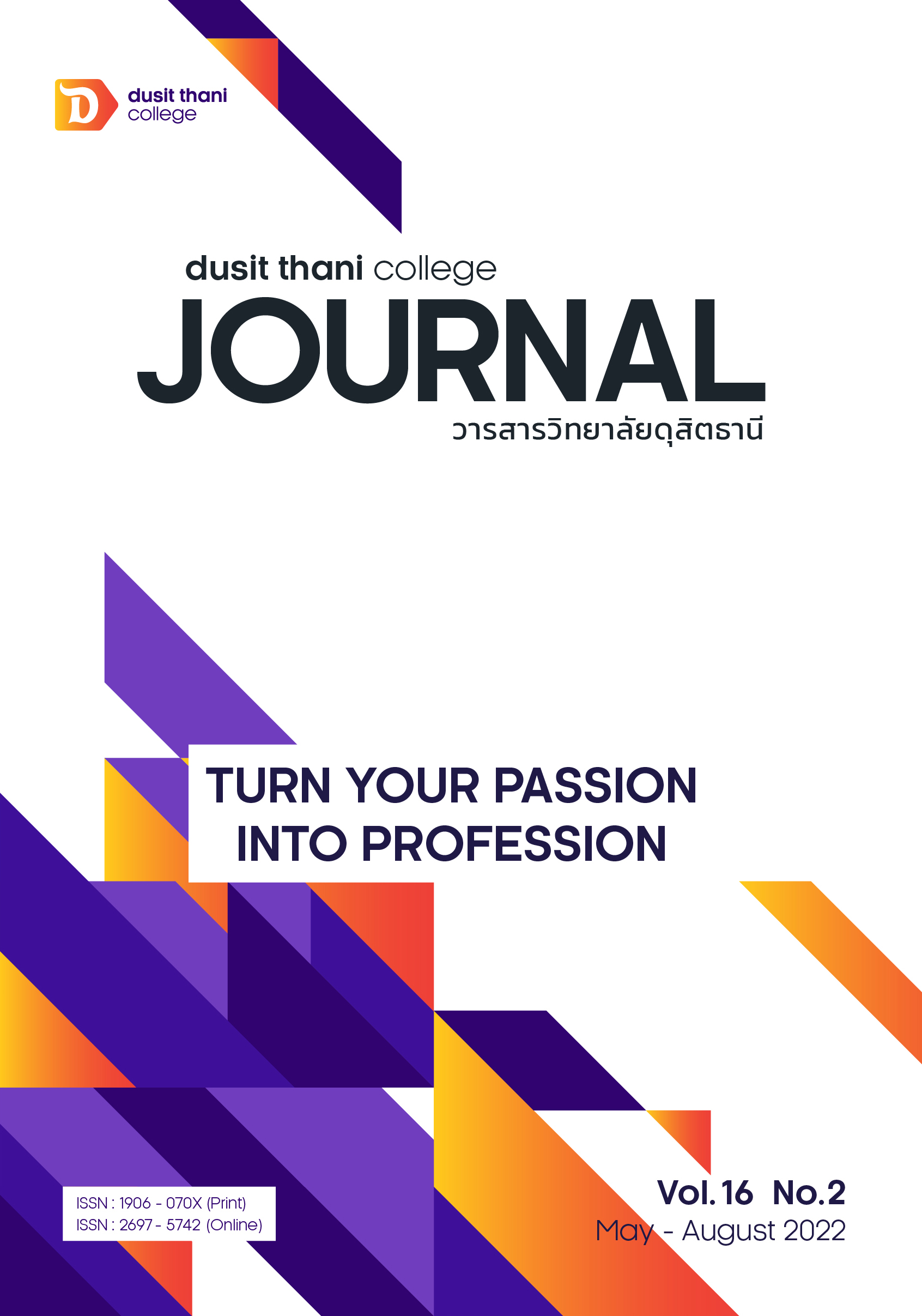Guidelines for Developing Products of the Wat Sai Community to be able to Generate income at a Level of Self-sufficiency
Main Article Content
Abstract
The objectives of this research are to study the current state of operations of the Wat Sai Protection Club and to study the guidelines for the development of both existing products and new products of the Wat Sai community to be able to generate income at a sustainable level of self-reliance. The research tool were interview form and questionnaire. Research samples include those involved in the Wat Sai community development include 7 people in the Sai temple community, 1 Wat Sai temple representative, 7 higher education institutions representatives, and 84 participants in the project to promote knowledge and skills for product development, which were students, parents, teachers and people in the Wat Sai community area. Data were analyzed by content analysis and descriptive statistical analysis.
The findings are summarized as follows.
- The results of a study on the current state of operations of the Sai Temple Protection Club to the way that Wat Sai community to create a community that can be self-reliant were found that the Wat Sai community, led by the Wat Sai Protection Club, had a clear idea to develop the Wat Sai community to be a self-reliant enterprise by developing from the knowledge and skills that have been transferred within the community from those who know the knowledge and experiences then developed into products. In the initial stage, there will be products in the herbal product group, such as soap, bath soap, shampoo, hair conditioner, borneol, inhaler, balm and handwashing spray, etc. the research team has helped initially include developing a brand and packaging for use in the name of "Watsai" which the Wat Sai community has applied to other products in the community as well. In addition, people in the community have developed a channel that can be used to publicize the training on various topics via Facebook pages: Wat Sai Bang Khlo as a channel to promote products for sale as well. However, the research team also found issues that the community and the research team agreed on that should be developed, namely the marketing and sales dimensions that should be promoted in the use of social media as a primary marketing tool. Moreover, there are proposals to improve the brand to suit a wider group of customers.
- 2. The results of the study of guidelines for the development of both existing products and new products of Wat Sai community to be able to generate income at a level that is self-reliant and sustainable. It was found that all stakeholders have proposed to organize activities to promote knowledge and skills that can be used to generate income for people in the community. To apply the knowledge gained to develop existing products or new products to have a variety and create added value. The research team has organized a project to promote professional skills for people in the community. by using the area of Wat Sai School as a basis for organizing activities in the form of a project to promote knowledge and skills for product development, 6 sessions, with a total of 84 participants. The results of the satisfaction analysis of the participants found that the overall satisfaction with the activities was at the highest level ( = 4.34). When considering each aspect, it was found that the aspect that participants were most satisfied with. The aspects of applying knowledge ( = 4.48), followed by place and time ( = 4.35), and knowledge providers ( = 4.30), respectively.
Article Details

This work is licensed under a Creative Commons Attribution-NonCommercial-NoDerivatives 4.0 International License.
Article Screening Policy
- All research and academic articles to be published must be considered and screened by three peer reviews in the relevant field / article.
- All articles, texts, illustrations and tables published in the journal are the personal opinions of the authors. Editors don't always have to agree. And no responsibility whatsoever is the sole responsibility of the author.
- The articles to be published must never be published. Where did you first publish? And not in the consideration of other journals If the audit found that there has been a duplicate publication It is the sole responsibility of the author.
- Any article that the reader sees as being plagiarized or impersonated without reference. Or mislead the work of the author Please let the journal editor know it will be your greatest blessing.
References
Community Enterprise Promotion Act, B.E. 2548. (2005). Government Gazette 122 (Part 6 A), 319-327.
Community Development Department. (2016). Strategic Plan of the Department of Community Development 2017-2021. Bangkok: Planning Division, Department of Community Development.
Office for Accreditation and Quality Assessment. (2007). Higher Education External Quality Assessment Manual. Bangkok: QUALITY THAI TRADING CO., LTD.
Office of the Council of State. (2005). Announcement of the Community Enterprise Promotion Board Regarding the qualifications and criteria of community enterprises.[Online]: Retrieving from: https://www2.moac.go.th/ download/pos%207607.pdf
Phattaraphanpee, T. (2021). The development of community occupation groups model to community-based tourism in Tumbol Bangpla Bangplee district Samutprakarn province. Research Report received a Fiscal Budget of Thailand Science Research and Innovation (TSRI) Year 2020.
Sangayotin, S (2020). Potential Development of Community Enterprises in the Southern Border Provinces to enhance competitiveness. Report of Graduate School of Commerce (GSC), Burapha University.
United Nations. (2009). Quality of Life in the ESCAP Region. Economic and Social Commission for Asia and the Pacific.
Volunteer Bank. (2010). Wat Sai Protection Club: Volunteer time. Retrieved from: https://www.jitarsabank.com/organisations/profile/349
Watsai. (2014). Message from the hearts of the people of Wat Sai. Retrieved from: http://www.webwat.in.th/_files_school/10310350/data/10310350_1_20140717-083501.pdf


